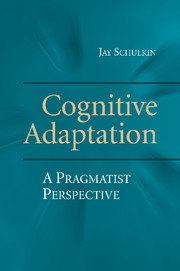Book contents
- Frontmatter
- Contents
- Preface
- Introduction
- 1 Cognitive Adaptation, Objects, and Inquiry
- 2 The Human Situation: Uncertainty and Adaptation
- 3 Time and Memory: Historical Sensibilities
- 4 Educational Sensibilities
- 5 An Instinct for Spiritual Quests: Quiet Religion
- Conclusion: Demythologized Reason
- References
- Index
Conclusion: Demythologized Reason
Published online by Cambridge University Press: 08 August 2009
- Frontmatter
- Contents
- Preface
- Introduction
- 1 Cognitive Adaptation, Objects, and Inquiry
- 2 The Human Situation: Uncertainty and Adaptation
- 3 Time and Memory: Historical Sensibilities
- 4 Educational Sensibilities
- 5 An Instinct for Spiritual Quests: Quiet Religion
- Conclusion: Demythologized Reason
- References
- Index
Summary
so much depends
upon
a red wheel
barrow
glazed with rain
water
beside the white
chickens.
– William Carlos Williams, “The Red Wheelbarrow”The human condition is determined on the one hand by our evolutionary history and on the other by pervading historical and social factors. We are thrust out in the world. The process of evolution engendered in humans a desire to compete and to cooperate, to form bonds of intimacy – and to deceive.
To placate the uncertainty and insecurity of existence, science has in some ways replaced the traditional theologies that attempted to satisfy our quest for certainty (Dewey, 1929/1960). Human desire for certain knowledge and boundless security is infinite in scope. Our aspirations rise higher than any barometer we can construct. Whatever science is, it is not about certainty but knowledge. And it does represent one of the glorious treasures of humankind.
A sense of history matters, not because all theories are equally as real but because history, our conception of ourselves, continues to change (Fuller, 1998; Kuhn, 2000). Science, like everything else human, is historically contingent (Dear, 1995, 2006; Hull, 1988; Shapin, 1995, 1996; Todes, 1989, 1997) and always needs to be linked to what matters to the human condition (Polanyi, 1946/1964). Perhaps a phrase from Kuhn is applicable: “post Darwinian/Kantianism” (Kuhn, 2000, p. 164), enriched by lexical entries in the common vocabulary of understanding (Levinson & Jaisson, 2006).
- Type
- Chapter
- Information
- Cognitive AdaptationA Pragmatist Perspective, pp. 144 - 154Publisher: Cambridge University PressPrint publication year: 2008



